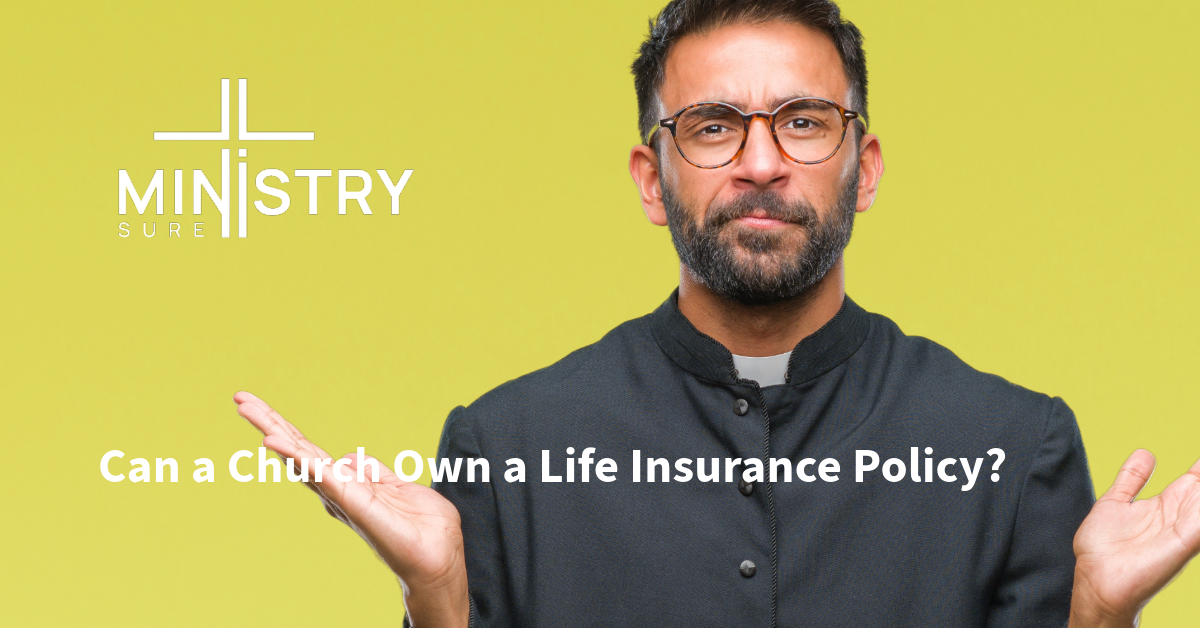Can a church own a life insurance policy? Pastor Steven had been the guiding light of his small church in Georgia for over twenty years. Known for his unwavering dedication, he often spent countless hours counseling congregants, organizing community events, and ensuring the church ran smoothly. His commitment went beyond spiritual guidance; he was a pillar of strength during tough times, always putting the needs of his congregation first.
However, like all of us, Pastor Steven had personal responsibilities and a family who depended on him. One day, during a board meeting, a concerned church member asked, “What would happen to Pastor Steven’s family if something unexpected happened to him?” The room fell silent as the reality of the question sank in. The church realized that they had a responsibility to ensure not only the spiritual well-being of their pastor but also his family’s financial security.
This sparked a discussion about the possibility of providing life insurance for Pastor Steven. Could the church legally pay for his life insurance coverage? What were the benefits and implications of such a decision? This blog post will explore the legality, benefits, and considerations involved in this important decision.

Understanding Life Insurance and Its Relevance to Churches
Life insurance policies are pivotal for ensuring financial security, especially in scenarios such as the unexpected death of a key church member, such as a pastor. Term life and permanent life insurance policies, including universal life policies, offer varying coverages suitable for different needs. For instance, a term life insurance policy may suit short-term financial protection needs, while a permanent life insurance policy can provide long-term financial security, potentially including cash surrender value.
Churches can benefit from owning life insurance policies on pastors or key figures, ensuring they can maintain operations and continue their mission without financial strain. Premium payments fall due periodically, but the resulting death benefit, typically free from income tax, can provide significant financial support to the church.
Moreover, life insurance can be a charitable organization’s asset, contributing to a church’s financial stability and even reducing taxable estate size. Individuals can also confer financial gifts to churches through life insurance. Before purchasing or donating, consulting with a financial advisor and tax advisor is crucial.

Types of Life Insurance
Let’s take a look at several common types of life insurance offerings.
Term Life Insurance
Term life insurance is a cost-effective option that provides coverage for a specific period, such as 10, 20, or 30 years. If the pastor passes away during the term, the policy pays out a death benefit to the beneficiaries. Term life insurance seems like a great choice for its lower premiums, making it an accessible option for many churches.
Permanent Life Insurance
Permanent life insurance, also known as whole life insurance, provides lifelong coverage and may include a savings component that accumulates cash value over time. Although the premiums for permanent life insurance are higher than term insurance, it offers long-term financial security and the potential for cash value growth.
Universal Life Insurance
Universal life insurance offers flexibility with premium payments and the potential to accumulate cash value. It allows churches to adjust the death benefit and premium payments as needed, providing a versatile option for long-term planning.
Financial advisors and insurance agents should guide churches in selecting the type of policy that aligns with their needs. Churches should ensure the chosen life insurance company is reputable and can offer the required insurance coverages efficiently. Always remember to contemplate tax deductions and consult a tax advisor when integrating life insurance into a church’s financial strategy.
Key Person Life Insurance
Key Person Life Insurance provides a specialized type of policy designed to offer financial protection and security to organizations, including churches, in the event that a crucial member, often known as a “key person,” passes away. Such policies are taken out by the church itself on the lives of pivotal figures whose loss would significantly disrupt church operations and potentially jeopardize its financial stability.
Key Elements of Key Person Life Insurance
- Policy Owner: The church or religious organization.
- Insured Party: The key individual, such as a pastor or church leader.
- Beneficiary: The church, which receives the death benefit.
- Purpose: To mitigate financial risks associated with the loss of a key individual.
The function of Key Person Life Insurance is to ensure that the church has access to funds that can offset the loss of contributions, leadership, and guidance attributed to the key individual. This type of policy can cover a range of expenses that the church might incur, such as recruitment and training of a successor, payment of debts, or handling of ongoing operational costs during a difficult transition.
Importance for Church Leaders
The loss of a church leader can be more than a spiritual or emotional blow; it can be a significant financial setback. Whether it’s a senior pastor, a bishop, or a treasurer whose expertise has been pivotal to the church’s growth, the passing of such an individual can disrupt financial inflow and outlay.
Benefits of Key Person Life Insurance for Church Leaders
- Income Replacement: It compensates the church for the potential loss of income that might have been generated through the key person’s influence.
- Debt Security: Ensures that any debts or obligations of the church can still be honored.
- Continuity Assurance: Provides the church with time and financial resources to find a suitable replacement without rushing, safeguarding the congregation’s continuity.
- Financial Stability: Guarantees financial security in times of sudden leadership loss.
- Operational Continuity: Helps to maintain daily church operations, even in trying times.
- Community Confidence: Provides the congregation with assurance and stability.
- Creditworthiness: Can improve the church’s creditworthiness for future projects or loans.
- Donor Assurance: Fosters confidence among the community and donors that the church is well protected against unforeseen financial strains.
In summary, Key Person Life Insurance offers a protective financial cushion, ensuring that the mission and vision of the church are not derailed by the untimely loss of its leaders. By mitigating the economic risks associated with the demise of influential church figures, this insurance offers a sensible approach to sustain and preserve the church’s legacy and works within the community. Consulting with an experienced insurance agent and financial advisor, skilled in matters of both finance and faith, will help in adopting the right type of policy that aligns well with the church’s particular requirements and theological ethos.
Personal Life Insurance Policies for Pastors
Engaging in the venerable task of guiding congregations, pastors are often deeply engrossed in the spiritual welfare of others, sometimes to the point of neglecting their own financial security. It is essential to underscore the importance of pastoral security through life insurance policies. Churches have the ability to provide this type of financial protection by owning a life insurance policy on the life of a pastor, which can serve multiple prudent and benevolent purposes.
With a life insurance policy in place, pastors can carry on their noble work, reassured that their families are shielded from financial hardship in the event of their untimely death. This coverage is not only a reflection of the church’s duty of care but also an investment in the long-term stability of the church community, as it helps ensure that a pastor’s family does not face financial duress during challenging times.
How MinistrySure Helps
MinistrySure is a Georgia-based independent insurance agency specializing in providing tailored insurance solutions for religious organizations, including churches and non-profits. We make it a mission to help these organizations navigate the complexities of insurance coverage, meeting their unique needs with comprehensive and affordable policies. MinistrySure’s expertise spans various types of insurance.
For churches looking to understand the necessity and benefits of property insurance, check out Why Does Your Georgia Church Need Property Insurance?. If liability insurance is a concern, Why Does Your Georgia Church Need Liability Insurance? provides detailed information. MinistrySure also explains the importance of professional liability insurance in Why Does Your Georgia Church Need Professional Liability Insurance? and cyber liability insurance in Why Does My Church Need Cyber Liability Insurance?. Additionally, for insights into how to protect your church leaders, read Safeguarding Your Church Leaders: Directors & Officers Insurance Explained.
MinistrySure commits to helping churches find the right insurance coverage to protect their ministries, leaders, and communities. Through personalized service and expert advice, they make it possible that churches can focus on their mission with peace of mind, with great protection in place.






